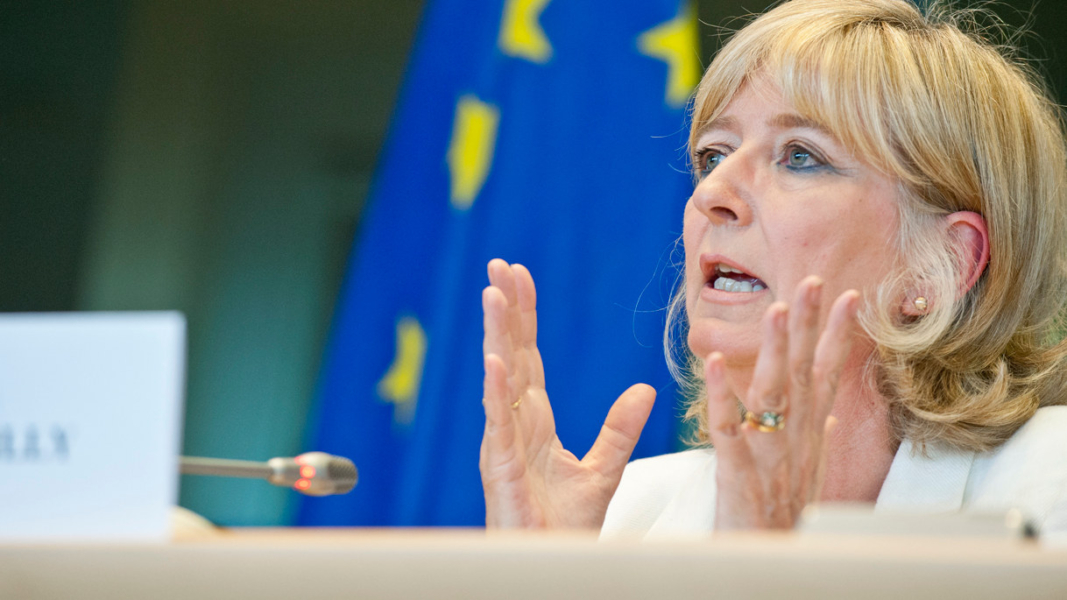Today the European Ombudsman Emily O’Reilly published recommendations calling for more transparency around informal negotiations between the European Commission, European Parliament and the Council of the EU, also known as “trilogues” meetings. This decision concludes an investigation process initiated by O’Reilly on 28 May 2015 aimed at increasing the transparency of EU law-making.
Transparency International EU has been pointing out for several years now that trilogue meetings held behind closed doors are a major transparency black hole, where large concessions are won and lost with very little oversight and without public disclosure.
We congratulate the European Ombudsman for this initiative, welcome the outcome of the investigation and urge the EU institutions to adopt the issued recommendations as soon as possible.
More information on our work on trilogue transparency can be found in our 2014 EU Integrity Study and in the recent reply to the Ombudsman consultation.
Background
What are trilogues?
Since 2009 EU laws have been adopted through the “ordinary legislative procedure”, in which the Parliament and the Council jointly decide on a Commission’s proposal. This process may entail several stages and often results in significant delays.
Trilogues are informal working meetings between the European Parliament, the Council of the EU and the Commission aimed at speeding up this legislative process.
During the last legislative term over 1,500 trilogue meetings were held, which allowed roughly 85% per cent of laws to be agreed already at a first reading.
Since trilogue negotiations have become the new normal in EU law-making, the same transparency provisions should apply to them as for the rest of the legislative process. The experience of the European Parliament, which successfully operates under stronger transparency provisions, has proven the feasibility of our demands.
Why do we need more open and transparent trilogue negotiations?
Despite the crucial role of trilogues in EU law-making, little is known about what happens during these meetings behind closed doors. Rules that apply to regular proceedings within the Parliament (open access to committee meetings for the public, web-streaming, online publication of minutes and voting records) do not apply to trilogues. Details about when meetings take place and who participates are hard to come by and no information is published afterwards.
For real insiders, there is a possibility to get some information via the European Parliament, where the rapporteur, after participating in a trilogue, is bound to inform the relevant committee of the state of play. Even though these interventions are published on public agendas and web-streamed, they include only very basic information and lack details.
But for the general public finding information on how decision are made is still virtually impossible, making it hard to monitor what is going on and to hold policy-makers to account for the decision taken. Even the Parliament’s own internal strategy document recognises that transparency has been traded off against efficiency in this case and there is a need for reform.
Transparency International EU firmly believes that greater transparency and greater diversity in stakeholder input into the legislative process leads to better policy decisions, better laws and ultimately better results. More transparency is the best protection against undue influence in trilogue negotiations.
Overcoming the Council’s resistance or How to make trilogues more transparent
There is a number of practical and easy ways to increase the transparency of trilogue meetings by publishing agendas, participants list and minutes or notes. The real challenge, however, is to make the role and position of the Council in these negotiations more transparent.
To increase accountability, the public must be able to see what has been decided and, most importantly, how certain compromises or new positions not mentioned in the initial mandates arise. Documents, such as agendas, positions of the negotiators and proposals for compromises should be disclosed before the meetings, and detailed minutes should be published after.
Transparency International EU has repeatedly outlined that the Council lacks the kind of basic transparency which would allow citizens, civil society organisations, or other stakeholders to understand how decisions are taken and to make it possible to hold their representatives to account. It is time for the Council to catch up with the standard practice of other EU institutions.




